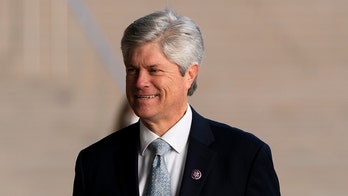Facebook co-founder 'unfriends' US to dodge taxes?
Two top senators target Eduardo Saverin for renouncing citizenship
Two top senators went after Facebook co-founder Eduardo Saverin Thursday over his decision to renounce U.S. citizenship, unveiling a proposal they claim would bar him -- or anyone -- from de-friending the United States in order to avoid taxes.
Sen. Chuck Schumer, D-N.Y., who unveiled the proposal alongside Sen. Bob Casey, D-Pa., said their so-called "Ex-Patriot Act" would subject high-earning ex-Americans to a steep capital gains tax.
The bill was their answer to the move by Saverin last year to renounce his citizenship and move to Singapore. The decision, made public in a recently released IRS list, came ahead of Facebook's initial public offering, and fueled speculation that Saverin cut ties with America in order to cut down his tax bill. Singapore does not impose capital gains taxes.
"Saverin has turned his back on the country that welcomed and kept him safe, educated him and helped him become a billionaire," Schumer said. "This is a great American success story gone horribly wrong."
Saverin, though, staunchly defended himself in a written statement Thursday. In a reference to the so-called "exit tax" those who renounce their citizenship pay, he said "I am obligated to and will pay hundreds of millions of dollars in taxes to the United States government."
He added: "I have paid and will continue to pay any taxes due on everything I earned while a U.S. citizen. It is unfortunate that my personal choice has led to a public debate, based not on the facts, but entirely on speculation and misinformation."
The Capitol Hill proposal could also have repercussions far beyond Saverin's portfolio. According to a 2011 report by the Taxpayer Advocate Service, about 4,000 people renounced their citizenship between fiscal 2005 and 2010, with the pace of renunciations increasingly rapidly in recent years.
The Schumer/Casey proposal would put the burden on anyone who renounces their citizenship to prove they didn't do it for tax avoidance purposes. If they can't prove that, Schumer said, the proposal would impose a 30 percent capital gains tax on future investment earnings -- for those who have a $2 million net worth or have had an average income tax liability of at least $148,000 in recent years.
In addition, the bill would bar them from ever returning to the United States.
Ahead of Saverin's personal statement, a spokesman for Saverin also told Fox Business Network his decision "had nothing to do with taxes."
"Eduardo was born and raised in Brazil and moved to the U.S. in 1992, becoming a U.S. citizen in 1998. He still has very strong ties to Brazil and is extremely passionate about not only his homeland, but also the U.S.," the spokesman said. "Eduardo recently found it to be more practical to become a resident of Singapore since he plans to live there for an indefinite period of time."
The spokesman called the senators' proposal a reaction to "perception, not reality."
Saverin would still be subject to a one-time "exit tax" for his decision, though the IRS would not confirm whether he has, in fact, paid that money.
Schumer cast doubt on Saverin's claims.
"Mr. Saverin says he's a global citizen, but it just so happens that the country where he has chosen to reside has no capital gain tax," he said. "This tax avoidance scheme is outrageous."





